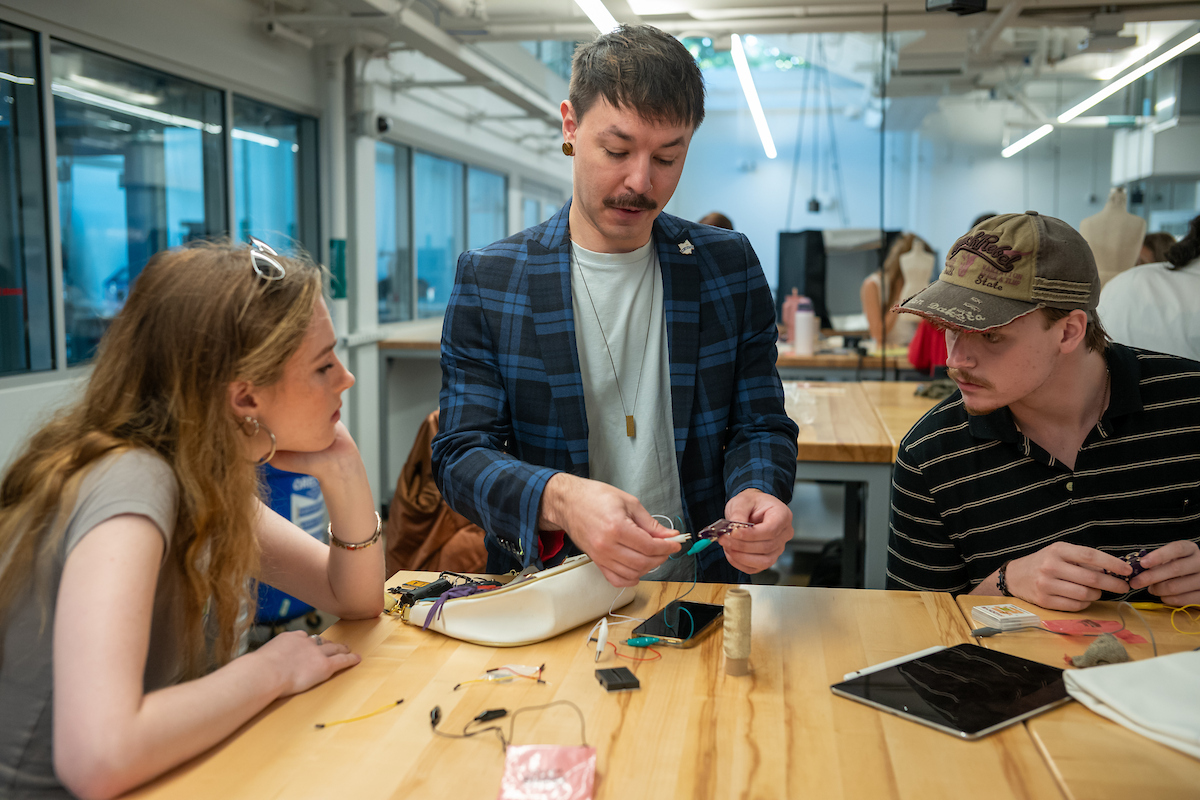Banner image: Daniel Fladung, assistant professor, Fashion Design and Merchandising in Kent State's School of Fashion at a workshop with students creating electronic textiles.
Comfortable, fashionable clothing with built-in technology that can monitor wellness and health or provide protection is moving from science fiction to reality through the development of electronic textiles (E-Textiles), combining elements of electronics, textiles, and programming.
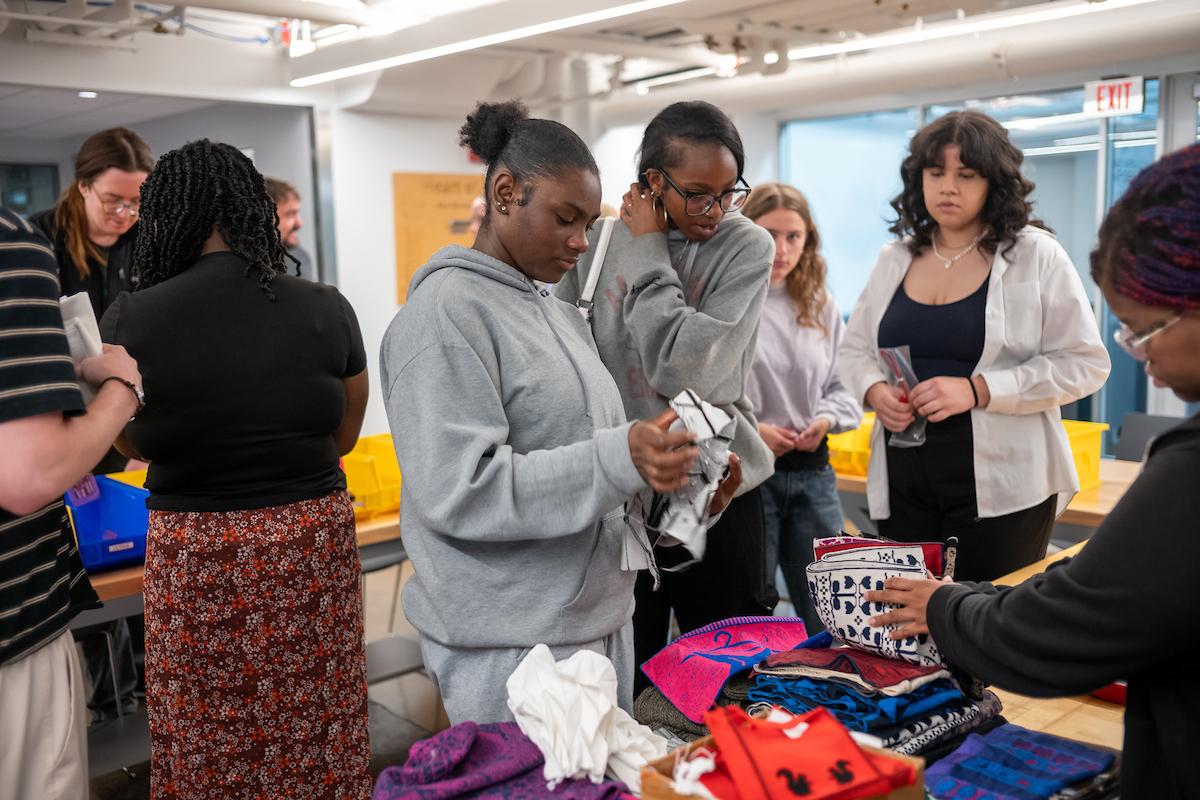
Soft Circuits & Smart Textiles
Kent State students and faculty from all areas of study, staff and community members are invited to participate in two workshops: Soft Circuits & Smart Textiles, Oct 2 & 10, from 9:30 a.m. to 3:30 p.m. in the Design Innovation Hub on Kent State's Kent Campus. These hands-on sessions teach, at a beginner’s level, how to stitch circuits, program microcontrollers, and design interactive fabric projects.
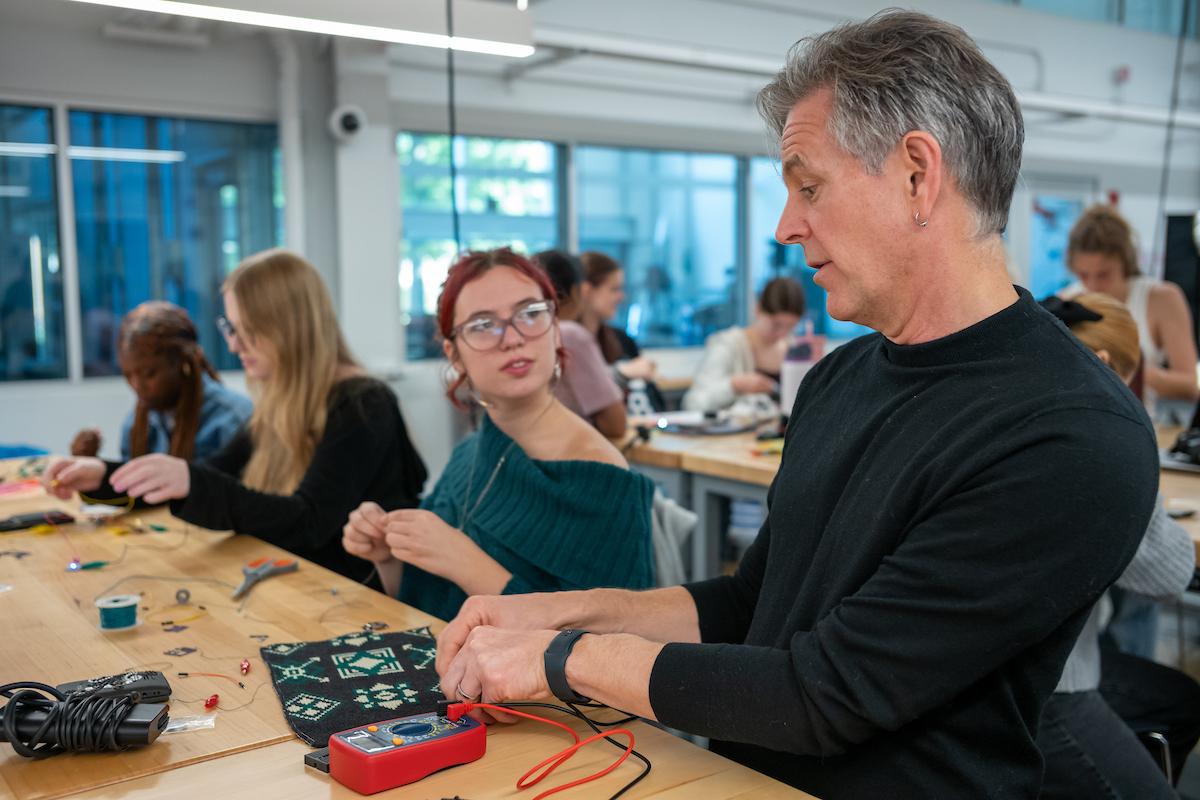
The Only Prerequisites are Curiosity and Creativity
Workshops will explore the history, materials, and applications of E-Textiles through demos and hands-on activities. No prior experience in electronics, textiles, or coding is required. Participants will learn basic techniques like how to integrate electronics into fabric using conductive embroidery, bonding, integrating microcontrollers, and using knitted sensors.
Through experimenting with sensors, LEDs, and microcontrollers, each participant will have the opportunity to apply their skills to design and build their own E-textile project.
People interested in participating in the workshops or attending the lecture can register using this link.
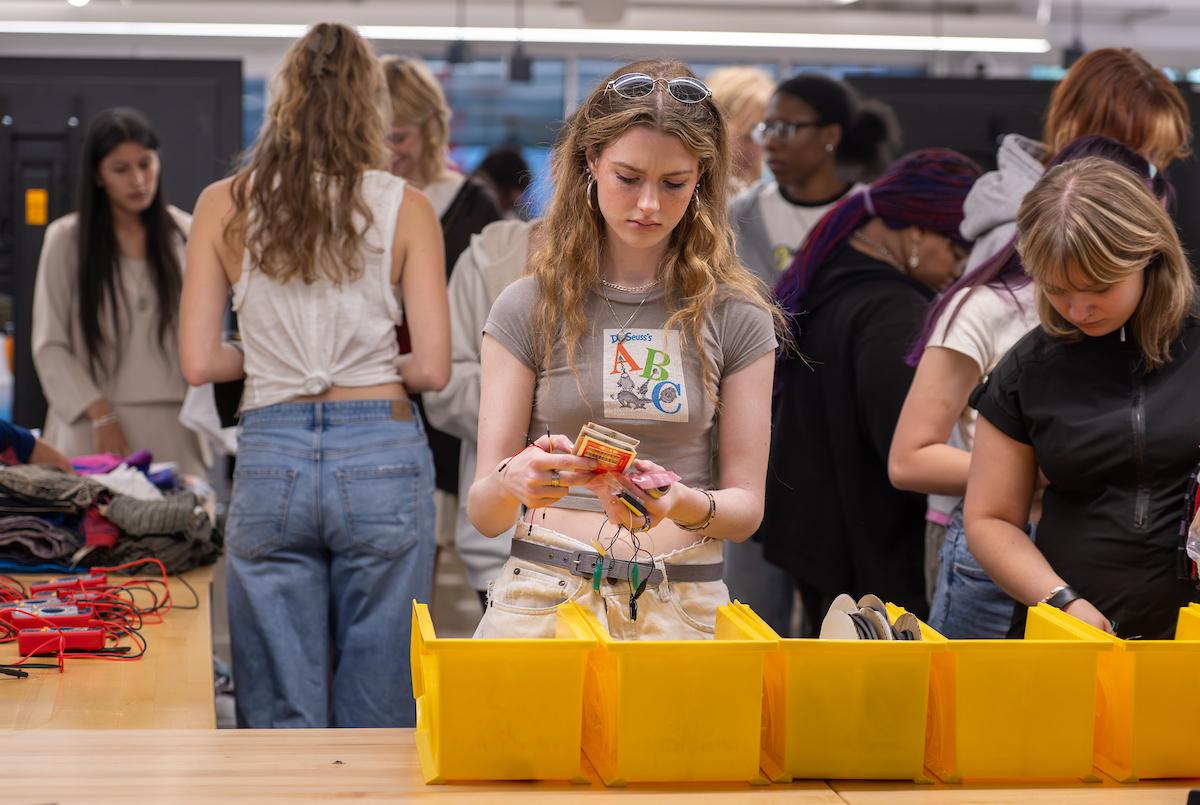
The Power of Creative Collaboration
Krissi Riewe-Stephenson is an assistant professor, Fashion Design and Merchandising in Kent State’s School of Fashion and is one of the facilitators of the series. Her applied research on the use of both traditional craft methods and emerging digital tools to bring innovation into the design process. She said, “We are thrilled for the students and community members to have the opportunity to learn a new skill and gain confidence in the design and incorporation of wearable technology and e-textiles in their future work, as well as give them a collaborative space to make new friends and form project partnerships.”
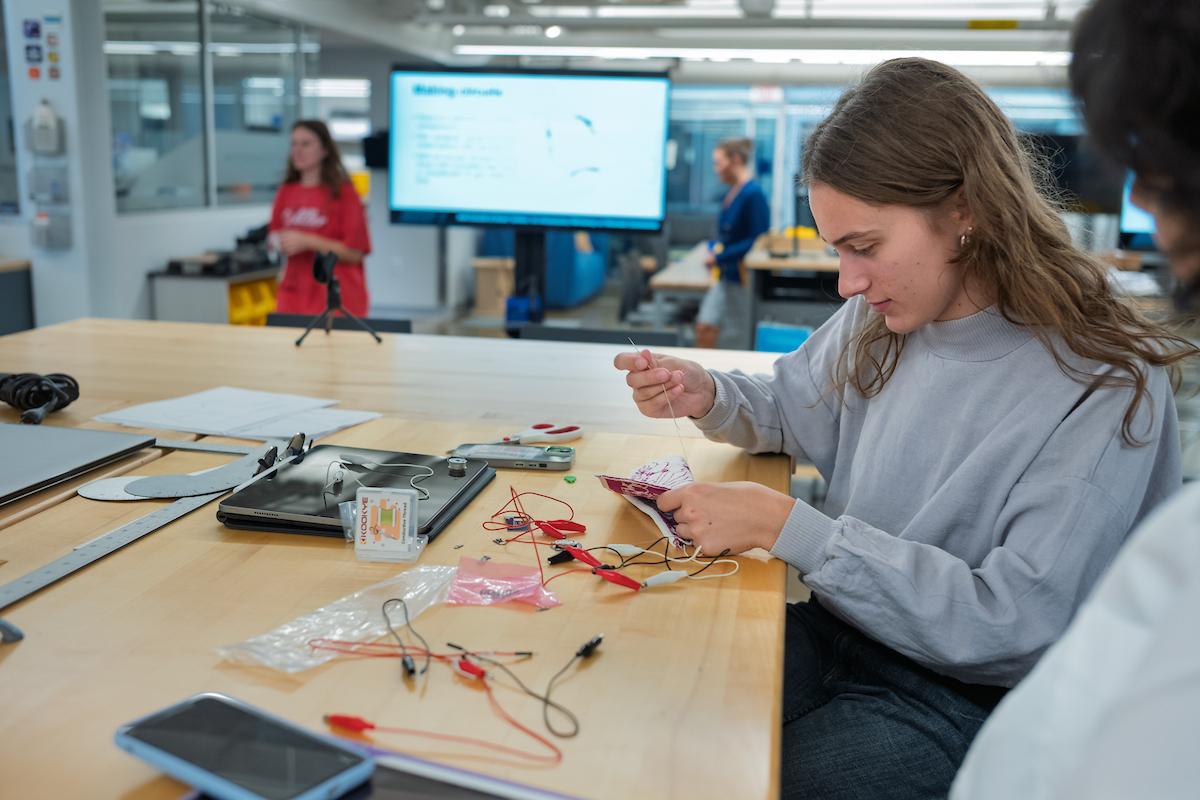
Lecture: Creating Innovative Textiles with Embedded Electronic Functionality
On Oct. 9 at 6 p.m., the series will continue with a lecture that will discuss the development and testing of a selection of electronic textiles that look and feel like conventional textiles while seamlessly incorporating the electronic devices. One approach is to embed small electronic components within a yarn-like structure to create an electronic yarn, which can then be used to produce a textile that is comfortable, breathable and can be machine washed like normal clothing.
The lecture, Creating Innovative Textiles with Embedded Electronic Functionality, will focus on electronic textile devices have been created using electronic yarns include wearables like gloves that can measure your pulse, socks that can tell if you are at risk of falling over, and textile solar panels.
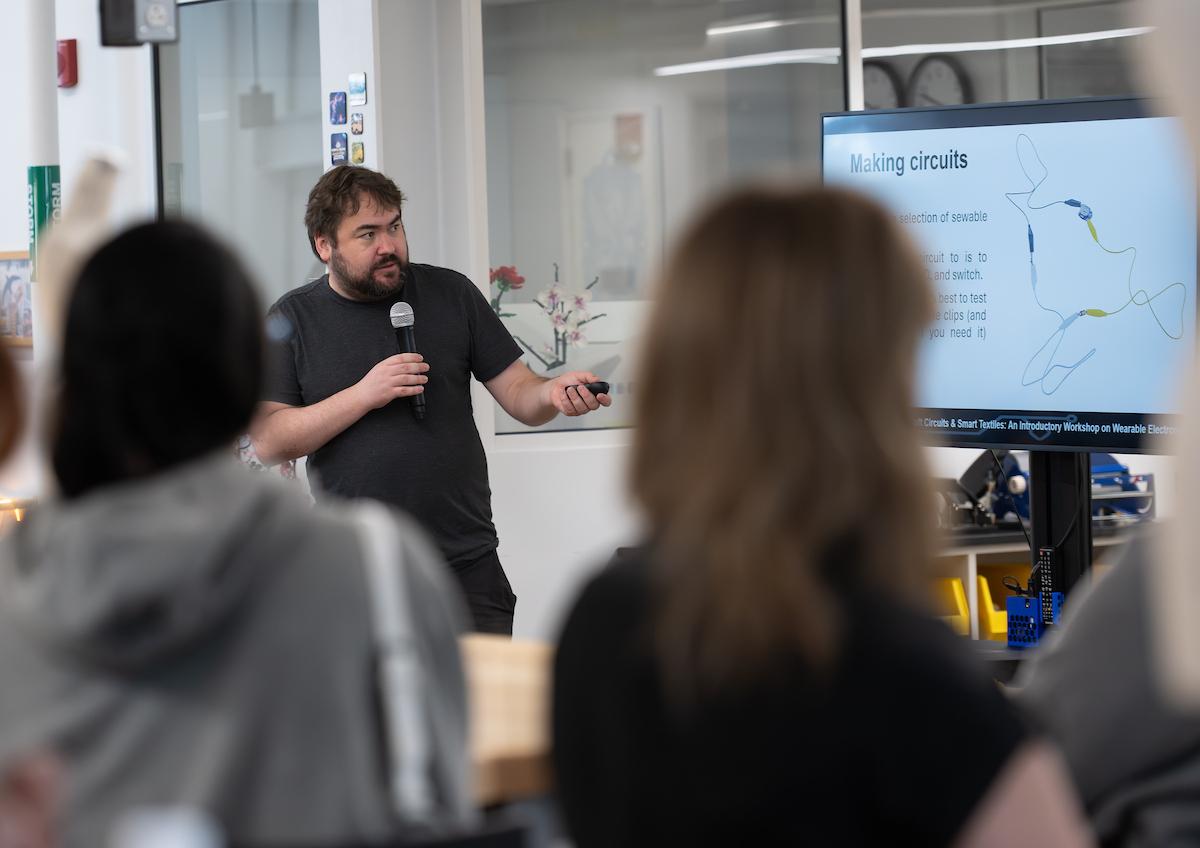
Theo Hughes-Riley, Ph.D., is a visiting facilitator for the workshops and lecture. He is an associate professor in Electronic Textiles at Nottingham Trent University in the United Kingdom. Hughes-Riley’s research in the design and development of E-textile devices has a particular emphasis on integrating sensor technologies in the creation of E-textiles for wellbeing, heath care and workwear applications.
Hughes-Riley said, “The lecture is a nice opportunity to share the e-textiles research I am conducting at the Advanced Textiles Research Group at Nottingham Trent University to a broad audience, while the workshops allow me to engage with students and members of the community to share the innovative and creative potential in e-textiles.”
Other Kent State faculty from the School of Fashion facilitating the workshops and lecture are Robert Pettys-Baker, Ph.D., assistant professor, and Linda Ohrn-McDaniel, professor and faculty director of the KnitLAB.

